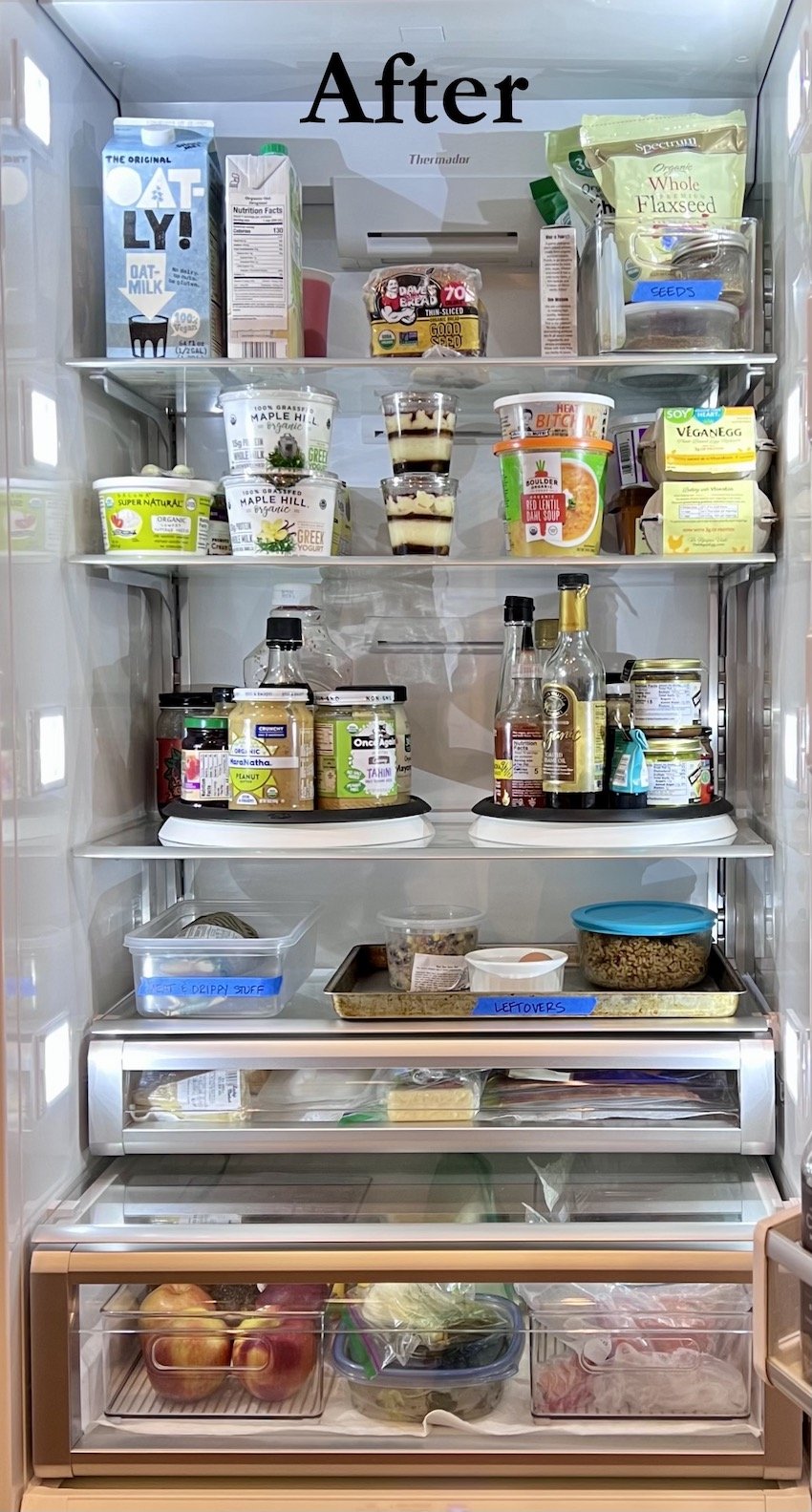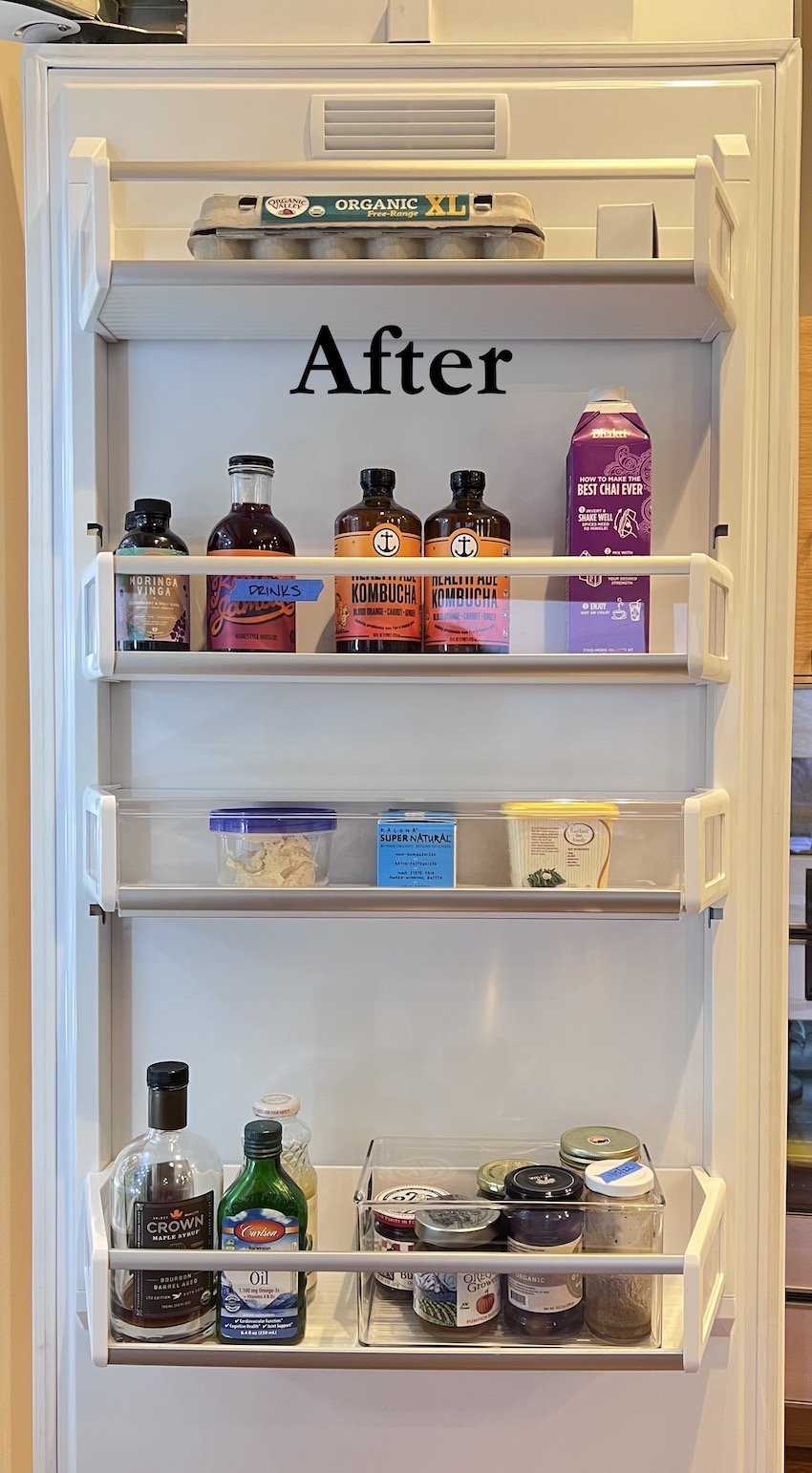Enjoy this blog from Kristin and we’d certainly love to know if you go through a similar journey of your own. I can say without a doubt that taking the time for this ‘task’ is enlightening in many ways. —Dina
What do dog hair, a dead fly, and April 27, 2014 all have in common?
If you guessed my refrigerator, you’d be correct. And before you get all grossed out and judgey, read on friends.
I don’t believe in New Year’s resolutions. They are ineffective for lasting behavior change; however, for the past 4 or 5 Januaries, I’ve noticed myself saying, “This is the year I’m finally going to reduce our food waste.”
In the United States, roughly 40% of our food supply ends up in landfills, and all this rotting food is a significant source of methane, a powerful greenhouse gas. 40% is huge! When food is wasted, so too are the land, water, labor, energy, and other resources used in producing, processing, transporting, preparing, storing, and disposing of all this discarded food. According to a 2020 research study published in The Nutrition Journal, Americans waste an average of $1,321 per person, per year on food that isn’t eaten. $1,321! I can think of many ways to use thirteen hundred dollars more effectively!
Frankly, I was annoyed at hearing myself saying the same thing year after year and tired of being part of the problem. So last week, I asked myself, “What specific things could I do so that less food goes into the compost bin each week and fewer containers end up in the recycling?”
I put on my analytical hat and considered all of my family’s habits and systems around eating and how they were interfering with my goal of wasting less food. I thought about our shopping, planning, eating, and storage.
I decided that organizing the space where we store food would be a great place to start, because if you can see it, then you have to think about it, and if you’re thinking about it, then you’re not ignoring it. It’s amazing how much stuff we accumulate when we don’t have to look at it every day. This is exactly what was happening in my refrigerator. Out of sight, out of mind.
Here’s what I did:
First, I pulled everything out of the fridge. It was a shocking amount of food.
Next, I removed all the drawers and shelves and cleaned from top to bottom. I consider myself a really tidy person, but lemme tell you, it’s head shaking what you find in there, including a dead fly and pieces of dog hair (Seriously?! Our dog died over a year ago!).
Then, I threw out everything past its sell-by date and anything we’d opened but couldn’t remember when (food poisoning is no fun). OMG, horseradish from 4/27/2014?! My fridge felt like a black hole where things go to expire.
Next, I wrote the open date on everything else. This is important, because it’s a visual reminder how long something’s been unsealed, that it needs to be consumed, or when it’s time to throw it out. Write dates on all your condiments, jams, spread, and sauces. Similarly, buy a roll of painter’s tape and keep it handy.
5. Finally, I organized things based on our habits and how my brain thinks. I bought two turntables--one for everyday condiments and the other for occasional condiments, then grouped beverages, dairy, seeds, etc. I labeled a shallow-rimmed baking sheet “Leftovers” for any foods that need to be eaten or are about to go bad, and it slides out easily. Lastly, I sorted my fruit and veggie drawers using clear bins similar to these so everything is easy to see.
I had no idea what, if anything, would shift by unapologetically clearing out, organizing, and downsizing my refrigerator, but I was willing to try. If nothing else, at least my fridge would be spotless and no longer a food vortex. The entire process (not including shopping at my favorite local hardware store for bins and turntables) took about 2 hours.
It’s been nearly a week, and I can say without hesitation that it’s been transformative. It may sound strange, but because my fridge is no longer overflowing, I actually feel relaxed when I open the door. I hadn’t realized how much stress was wrapped up in staring at so much possible waste until I eliminated the waste!!!
James Clear brilliantly stated, “You do not rise to the level of your goals. You fall to the level of your systems.” I’m feeling very optimistic with the new system so far, but it’s only been a short time. Watch this space for updates on how much we’ve been able to reduce our food waste footprint in the months to come.
If you’ve been able to reduce your annual food waste, what habits or systems have you established? Please share in the comments because the more we can do collectively to lessen our footprint, the better we’ll leave the planet for generations to come.
Okay, off to tackle the pantry!
Happy organizing,
Kristin








